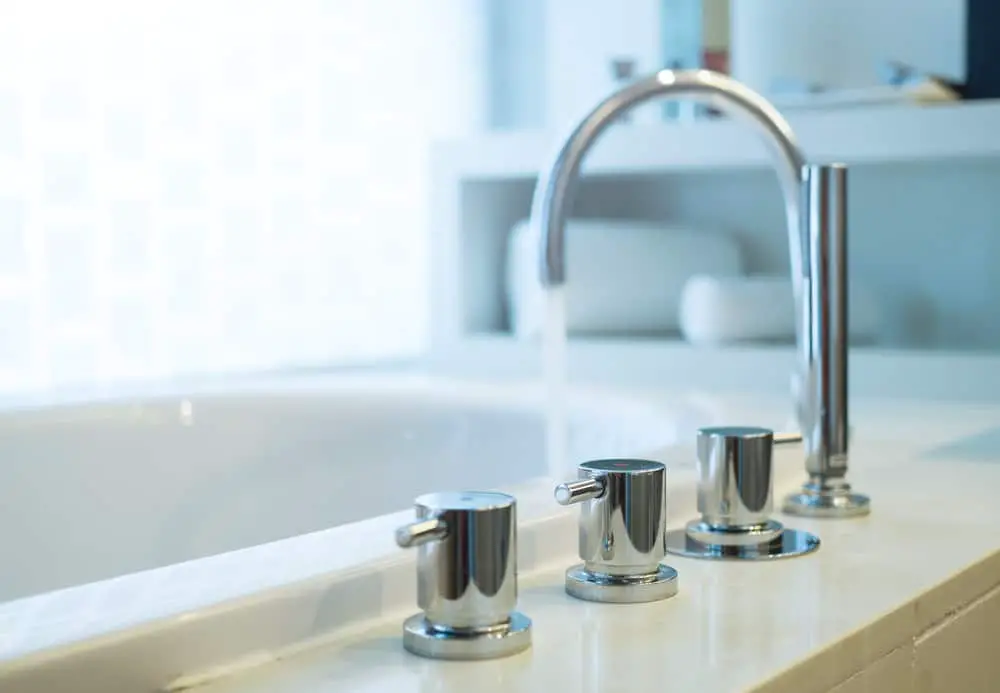For most people, drinking from taps is a common practice.
Unless the water from the tap appears dirty, it is always believed to be clean.
However, some people still recommend that tap water should be treated first before it is taken into the body.
What about drinking water from the bathtub faucet?
You might feel thirsty when taking a shower inside the bathtub and be tempted to drink water from the faucet.
But, Is It Safe To Drink Water From The Bathtub Faucet?
Unfortunately, drinking water from the bathtub faucet is unsafe because it is not fit for direct consumption. This water comes from tanks that might be contaminated. It passes through lead pipes and also has low doses of drugs. Another reason you should not drink bath faucet water is because of the high chlorine content, bad smell, awkward color, and health risks.
Even though there are times when you may find it necessary to drink bath faucet water, it is not wise to make such a practice a habit.
If you are spending more time in the bathtub, have a glass of clean drinking water by the side of the bathtub.
This post explains why drinking water from the bathtub faucet is unsafe.
Five Reasons Why You Shouldn’t Consume Bathtub Tap Water
1. Health Risk
Drinking water from bathroom faucets presents you with high risks of health issues.
Well, you can still get these diseases when bathing.
However, allowing the bacteria to enter your body system directly by drinking this water is riskier.
Some people will spit out the water they swallow when bathing, which can speed up diseases.
It is quite unpleasant to see people drinking from bathtub faucets and not using the appropriate kitchen faucets.
It is even more advisable to use the filtration plant in your house instead of using these other water sources.
While taking water directly from the bath tap, you may not know the type of germs you are introducing to your body.
Again, you cannot tell how harmful they are or determine the extent of complication they will bring to your body.
Even if you only consume a little amount of this bathroom water, the small number of pathogens you introduce in your body add up and can become an issue over time.
2. Old Pipes
When pipes get old, they tend to accumulate more lead.
Older homes, apartments, hostels, and hotels have pipes that are as old as the physical building.
It is very uncommon for the pipes to be replaced unless there is a severe plumbing issue.
Lead pipes were widely used in plumbing because they bend easily and cannot corrode. However, these pipes contain high toxins.
These toxins are highly harmful to the human body, so there is a restriction on not using lead pipes for supply pipes.
However, if you are in a house built several years ago, it can be costly to change the lead pipes.
In some modern homes, plumbers use a different material for kitchen faucets but still use lead pipes for the bathroom water supply. All you can do is avoid drinking the faucet water.
3. High Chlorine Content
Water from the bathroom supply system may already have chlorine. This chlorine is meant to clean and disinfect the water.
Generally, chlorine is known to perfectly clean water in pools and swimming places.
However, consuming water with high chlorine contents poses high risks to health.
For example, chlorine is known to kill any bacteria and can kill the beneficial bacteria that help’s
with digestion along your gut. The chlorine can also compromise the ability of your body to defend itself and expose you to repeated illnesses.
4. Low Doses Of Drugs Present In The Water
Some water systems may have particles of drugs that some people use. However, the drug content in water tanks is usually in low doses.
This is an eye-opener for anyone who thinks water from a bathroom is safe to drink.
These drugs are sometimes inflated back into the water system through a sewer or when farmers use fertilizers, and it drains into water sources.
Knowing that the water for your kitchen faucets is not the same as that in the bathroom, you will know better where to get the drinking water.
5. Bad Smell And Color
The color of the water from your bath faucet is quite unique and better indicates that it is not good for direct consumption.
Your eyes will literally deny that this water is safe, and you will simply avoid drinking it.
In some cases, the water has a foul smell, indicating that the tank has a high amount of dirt and needs to be cleaned.
It can also indicate that there is a problem within your plumbing system or the drainage system.
Conclusion
Water is a basic need that helps humans and other living things to survive.
Literally, water is life. When you get thirsty while in the bathtub, you may be tempted to take water from the bathtub faucet and drink, but this is not okay.
You could be introducing harmful substances into your body.
To remain safe, it is advisable that you avoid drinking water from your bathroom faucets and, instead, fetch from the kitchen faucet or at the water filtration point.

